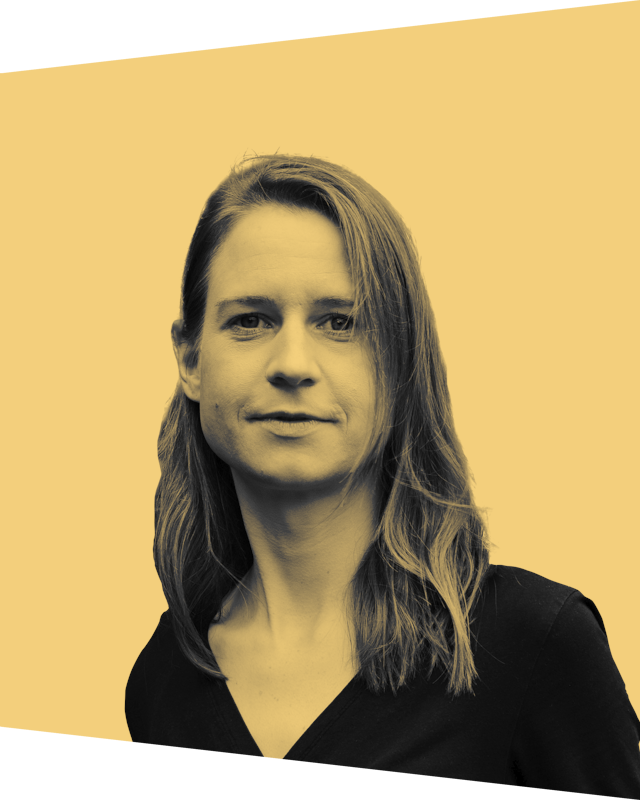Why objective journalism is a Fata Morgana
We are better informed if we accept that there is no such thing as objective journalism. In order to do so, we need journalists to acknowledge the myth.
- objective
- neutral
- rational
Or:
- subjective
- biased
- emotional
How should the media report? Of course, just as described in the first list!
For sure, journalists shouldn’t be influenced by their own perception or any kind of emotional sentimentalism. Emotions have no place in the news; at best they are a sign of weakness and obscure the view. The people have a right to be informed in an objective and neutral way about what’s going on in the world.
In Germany, this is even legally covered in specific contracts of the public broadcasters:
In the products of the ZDF an objective overview of the world affairs should be given.
This is also engrained in the thinking of the editor-in-chief of the Consortium of public broadcasters in Germany (ARD), who has the final say over the most popular TV news watched by more than 10 million people every night:
[T]he neutral and objective reporting of the Tagesschau [Daily News] could be more important than ever, given the politically restless times.
There is only one problem with all this:
Just like with a »real« Fata Morgana, we only recognize it as one if we start moving. If we remain still, we cling to the illusion.

Only subjective news has any meaning
At first, there is always one question: How does a newsroom decide which news makes it to the frontpage and into the daily news shows? For sure, it
Why should the powerful be kept at bay?
That’s why the Olympic Games are covered while they are underway – and not two months later. And for the same reason we are informed about traffic accidents and planned tax reforms in our home country but less so about those in China or Peru. So far, so good.
It gets trickier, when we start thinking about how the chosen news is covered: Why are economic growth and increased export usually described as desirable? Even though economic growth often damages the climate and therefore everybody in the end. Even though the title of being the world’s export-champion ruins the life of many people in other parts of the world.
»We are not informed objectively. When it comes to topics like the EU, Brexit or Trump the ARD and ZDF report in ways that are one-sided and partial.« – Beatrix von Storch (AfD) at a talk show
And why do journalists publish their investigations about Panama and Paradise Papers? Because they consider the behavior of the involved people and companies morally wrong and
And this is the crucial insight: These goals only have meaning because we believe in a liberal democracy.
Just compare it to the watchdog function in China, where the protection of the nation comes first. It does not matter whether we talk about an editor-in-chief,
All that has nothing to do with sentimentalism, but it is the only reason why we can distinguish between »right« and »wrong«, and therefore it is the only reason why we are capable of making decisions at all. Because they are always based on moral values and ideals; without them we are incapable of acting.
»Objective reporting is one of the fundamental conditions for a democratic society.« – A regional broadcaster about the Daily News
In that light, the accusations of right extremist parties all over the world, Trump and others, that the press is partisan and lying, get a completely new meaning: Journalists keep on emphasizing that they report objectively. However, that is impossible, because all reporting is influenced by certain values. If the values of the journalists do not match those of the audience, the accusation of not reporting »objectively« is suddenly accurate. It makes no difference whether it is coming from the right or left end of the political spectrum; it does not matter whether it concerns national interests or democratic values. In the end, the claim to report »objectively« puts our democracy at risk.
The thought that there is no such thing as objectivity can be distressing. Not only for readers, listeners and viewers, but also for journalists – especially for those that proclaim the opposite.

Is that the »best obtainable version of the truth«?
After the topic has been carefully selected,
- Words are values: Why are the bombs of the so-called Islamic State (IS) »terror attacks« and those from the U.S. Air Force »bombings«? Why did we have a »refugee crisis« in many countries two years ago? And why did people even talk about a possible »state crisis« due to the slow process of forming a new government in Germany?
- Artificial dichotomy: The journalistic craft involves looking at »both sides«. That makes sense when the government and the opposition are both asked about a new draft bill. However, in many contexts it does not work. Either because there are more than two sides and next to »black« and »white« there are multiple shades of grey. Or because proportions are simply ignored, which often happens in case of climate change, when the climate scientist’s position (representing the scientific consensus of 99.9% of all climate scientists) is
- Negativity bias: »If it bleeds, it leads« – the well-known slogan is still part of the manifesto of many pressrooms and results in an over-representation of single, mostly negative events in the news.
The result is a caricature of the basic idea of an objective reporting. A caricature that – in the long run – damages a well-functioning liberal democracy. Because the latter needs more than ill-informed, hamstrung citizens.
So, what happens if we change our position – and unmask the Fata Morgana?
Yes, it is strenuous – but worthwhile
Yes, it is strenuous to hit the road. It is unpleasant, when the Fata Morgana at the horizon dissolves into nothing but hot air. When the things that we took for granted are replaced by insecurity and vulnerability.
It does not open the doors for arbitrariness. Of course, there are facts, numbers and circumstances. The point is: Without judgment and context they have no meaning.
And it is this insight that allows us to realize why we choose this topic as the lead out of a potentially infinite number of topics. It allows us to accept that the research behind it is influenced by our own horizon; that the language, the pictures and sounds that we eventually choose for an article, a podcast or a video are highly influenced by our own values.
Maybe this also helps us to understand why some readers or listeners cannot deal with it. And we can still gain their trust (back), because we honestly say why we made certain decisions – instead of selling those decisions as an objective truth.
Instead of a deeply rooted belief in a mirage we need more critical thinking,
Mit Illustrationen von Karolin Ohrnberger für Perspective Daily



